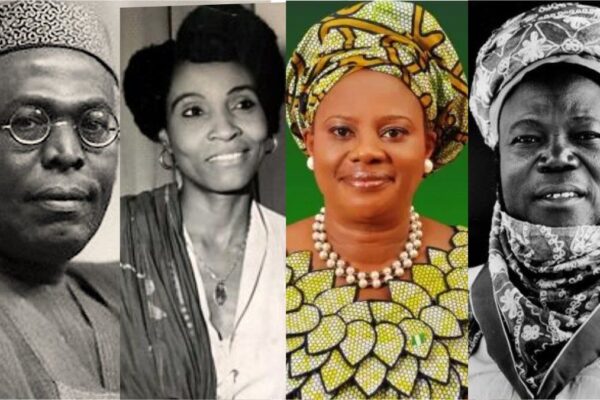Nigeria is the most populous country in Africa, with approximately 219 million people. More than half of its population lives in urban areas, and will likely increase in the next decade. Hence, there is a need to list the top 10 largest cities in Nigeria.
As of 2020, the degree of urbanisation in Africa was about 40 per cent, the lowest among all continents. Poverty, insecurity and corruption, among others, are contributory factors to why the continent seems to be lagging. Meeting the needs of a fast-growing population in urban areas can be a challenge, which is why there is an absolute necessity to implement policies that will help people living in both urban and rural areas.
But that is a story for another day. Today, this article shall focus on the largest cities in Nigeria.
Below are the top 10 largest cities in Nigeria.
Top 10 largest cities in Nigeria
Below is a more detailed list of the largest cities in Nigeria in terms of population:
1. Lagos – 15,000,000

Lagos is the commercial capital of Nigeria, thus topping the list of the largest cities in the country. The city, which currently boasts about 15 million inhabitants, was Nigeria’s capital territory from 1960 to 1975. Situated on four main islands namely, Lagos, Victoria Island, Iddo and Ikoyi, all connected by a network of bridges, Lagos has the largest seaport and fishing zone in the country.
As a result, the city is known for its thriving industries such as textiles, automobile assembly, food and beverage processing, metal works, crude oil and pharmaceuticals. The Yoruba are the largest ethnic group in the city, even though Lagos accommodates people of all tribes, cultures and races.
ALSO READ: Top 10 richest states in Nigeria
2. Kano – 4.1 million

Kano is the largest city in the northern part of Nigeria, boasting thriving industries such as textiles, food processing, plastics, pharmaceuticals, chemicals, cement, soap, metal works and furniture. Located in North-West Nigeria, the city is an agricultural centre for produce such as peanuts, wheat, cotton, millet, rice and maize.
Hausa is the most spoken indigenous language while the majority of the population are Muslims. Kano’s security challenges have prompted many non-city business investors to scale down their operations in the city.
3. Ibadan – 3,649,000

Known for its corrugated roofs, Ibadan is Nigeria’s largest city in terms of land mass. The city has a population of over three million people and is also the capital city of Oyo State, situated in South-West Nigeria. Ibadan boasts of several industries, such as cigarette manufacturing, food processing, furniture, metal works, handicrafts and soap. Cocoa and Cotton are the major agricultural products in the city.
In addition, Ibadan houses Nigeria’s first indigenous university, the University of Ibadan, an institution that has produced some of the world’s finest minds from Nigeria like Wole Soyinka, Chinua Achebe, Ken Saro Wiwa, Christopher Okigbo, Emeka Anyaoku, Mabel Segun, JP Clark and many more.
The city is, however, burdened by poor living conditions, poor sanitation and an open drainage system, which have heavily contributed to its increasing traffic congestion.
5. Port Harcourt – 3,637,000

Port Harcourt has a population of over three million people, which makes it the fifth-largest city in Nigeria. It is also the largest and capital city of Rivers State. Port Harcourt is located in the oil-rich region of the Niger Delta. Hence, its major industry is petroleum, with mega firms like Shell and Chevrolet, establishing offices in the city. As a result, Rivers State is one of the wealthiest states in Nigeria due to crude oil processing and exports.
ALSO READ: Top 10 best states in Nigeria to live in
6. Aba – 2,534,265

With a population of over two million people, Aba is the largest city in South-East Nigeria. The city is the commercial centre in Abia State and one of the most important cities in the South-East.
Aba is known to be a hub of manufacturing. The city also hosts the Ariaria International Market, which is the second largest market in Nigeria after the Onitsha Main Market. Other markets in Aba include Ahia Ohuru Market, and Eziukwu Road Market, among others, which serve the entire region with wares, food, cosmetics, and other material goods.
7. Abuja – 1,693,400

Abuja hosts Nigeria’s administrative capital. It is a planned city built mainly in the 1980s based on a master plan. FCT has a population of over a million people. Real estate is the major sector of the city’s economy. There is also the Abuja International Trade Fair (AITF) which has been held annually since 2005.
8. Benin City – 1.496,000

Benin City is the centre of Nigeria’s rubber industry. Located in South-South Nigeria, the city also has a significantly thriving oil production industry. More importantly, Benin is known for its proud cultural heritage and rich history. The indigenous people speak the Bini Language. They are also known for their rich cultural sense, such as beads, body marks, bangles, anklets and raffia work.
8. Kaduna – 1,187,000

Kaduna is the capital city of Kaduna State, in North-West Nigeria. It was once the political capital city of Northern Nigeria. Kaduna is a trade centre and a major transportation hub, with its rail and important road network which connect to other parts of the country. With a population of 1,187,000 (2023), Kaduna has a thriving industry in manufacturing such as textiles, machinery, steel, aluminium, petroleum products and bearings.
Other manufactured goods in the city include plastics, pharmaceuticals, leather goods, furniture and televisions. Agriculture is also a major sector in Kaduna, with the Bank of Agriculture located in the city as its headquarters. In addition, the Kaduna Refining and Petrochemical Company (KRPC), one of Nigeria’s four main oil refineries, is located in the city.
9. Maiduguri – 870,000

Maiduguri is the capital and the largest city of Borno State in North-Eastern Nigeria. It is also the commercial hub of the North-East. Its economy is heavily dependent on services and trade. The city’s economy has, however, been grossly affected by security issues, such as terrorism, banditry and kidnapping.
10. Zaria – 786,000

Zaria is the capital city of the Zazzau Emirate Council, one of the original seven Hausa city-states, and a major city in Kaduna State. The city’s economy is primarily based on agriculture with the production of staple foods like guinea corn and millet; and cash crops like cotton, groundnuts and tobacco.
Zaria is also known for being the home of textile makers, artisans from traditional crafts like leather work, dyeing and cap making, to tinkers, printshops and furniture makers.
The Ahmadu Bello University (ABU) is also located in this city.
ALSO READ: Top 10 poorest states in Nigeria








